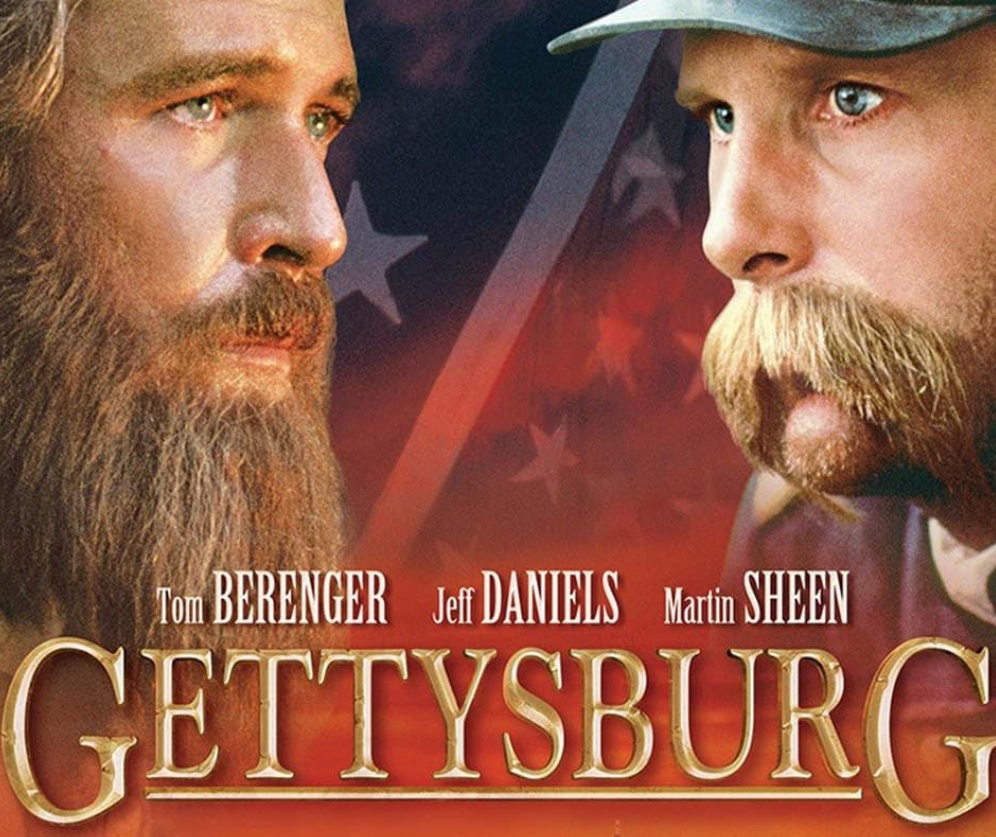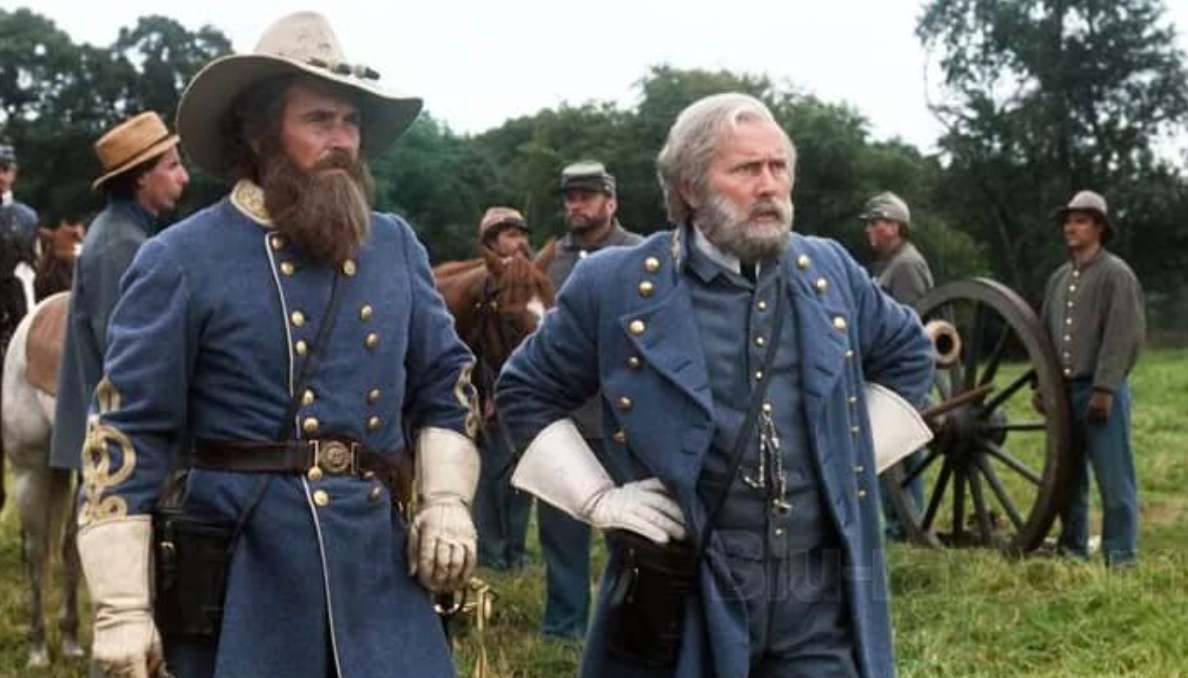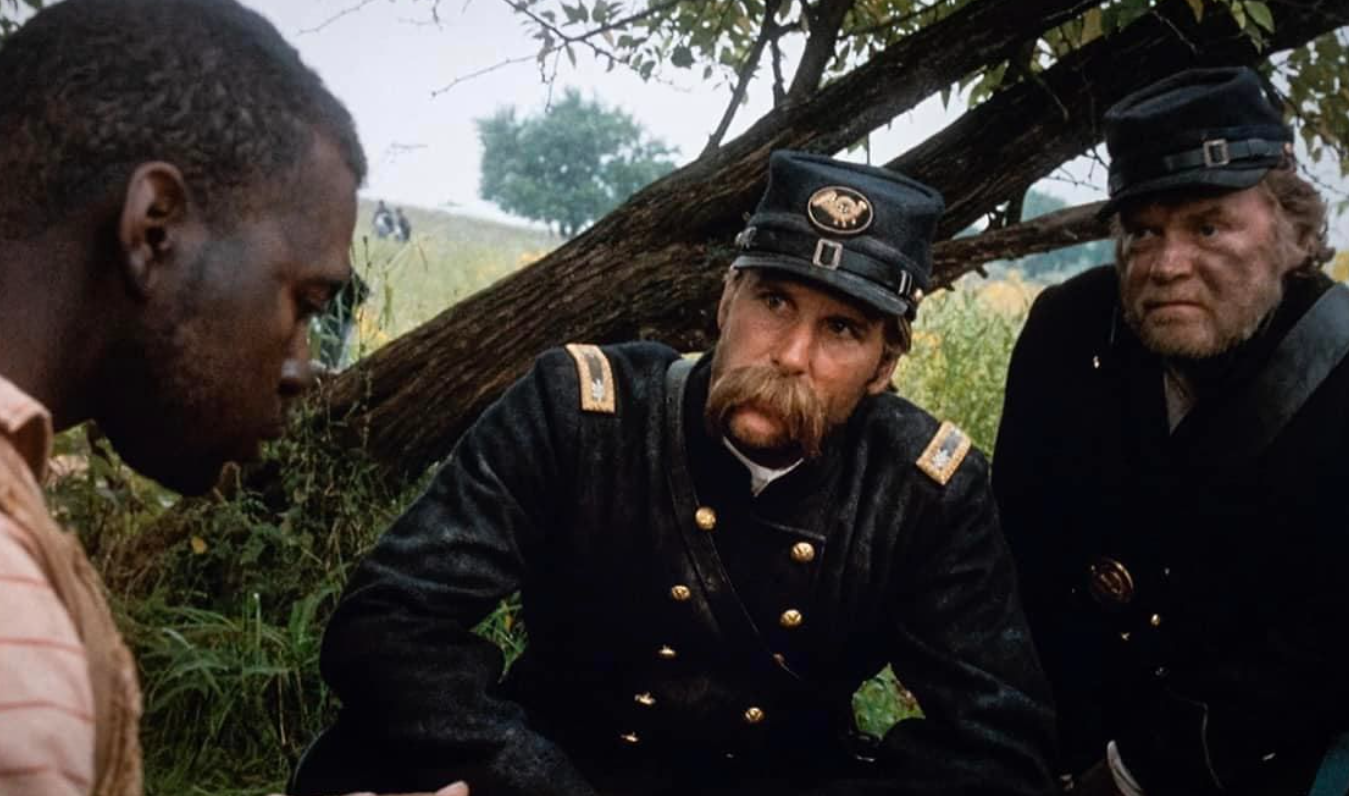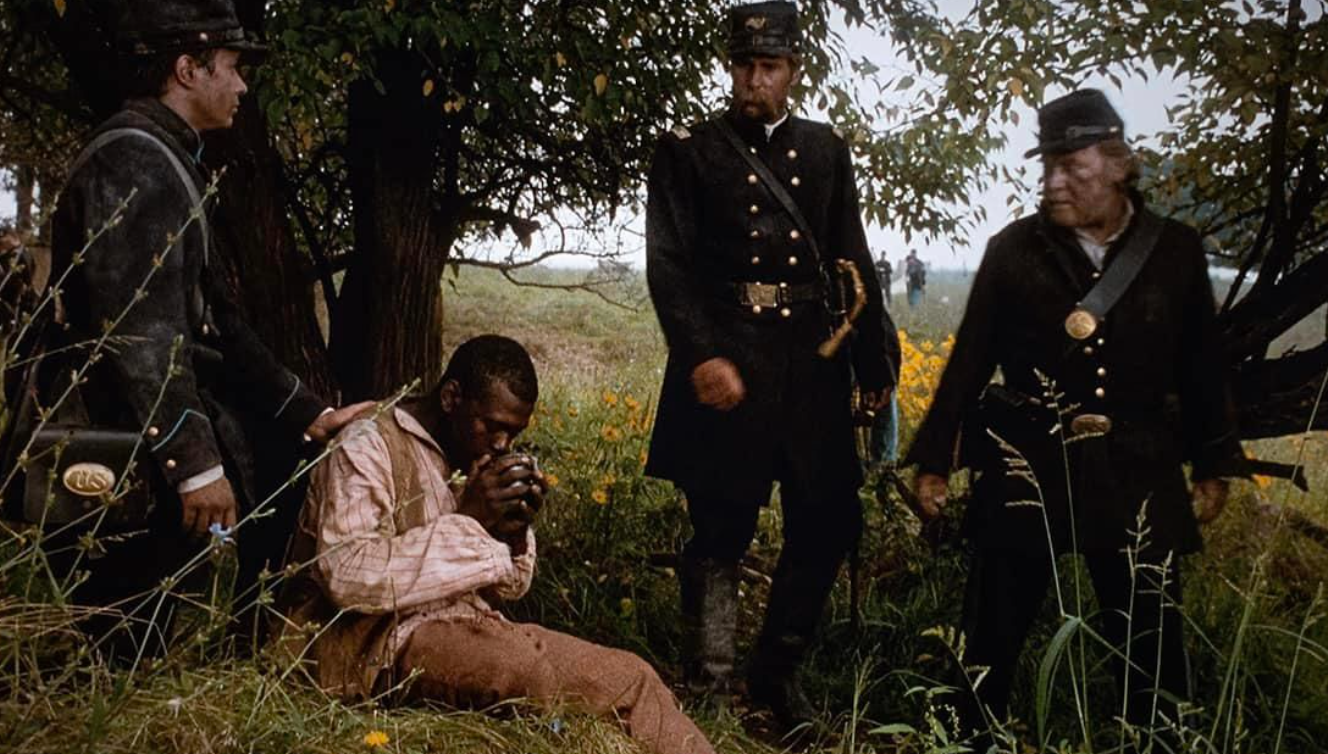🎬 Gettysburg (1993): A Monumental Depiction of the Pivotal Civil War Battle

- Director: Ronald F. Maxwell
- Main Cast: Tom Berenger, Jeff Daniels, Martin Sheen
- Genre: Historical War Drama
- Release Date: October 8, 1993
- Runtime: 254 minutes
Plot Overview:
Gettysburg is a historical war drama that focuses on one of the most crucial battles of the American Civil War: the Battle of Gettysburg. The film, adapted from Michael Shaara’s Pulitzer Prize-winning novel The Killer Angels, chronicles the three-day conflict in July 1863. It features the perspectives of key Union and Confederate figures such as Colonel Joshua Chamberlain (Jeff Daniels), General Robert E. Lee (Martin Sheen), and General James Longstreet (Tom Berenger), and shows how the tide of war shifted during these critical days.
What to Expect:

- Authentic Battle Sequences:
- Gettysburg delivers some of the most realistic and large-scale battle reenactments in film history. With thousands of extras, historical uniforms, and actual locations, the battle scenes are both visually stunning and emotionally charged. The film brings the bloodshed and strategy of war to life in an authentic way.
- Character-Driven Drama:
- Despite the scale of the conflict, Gettysburg excels in its character development. The focus on historical figures like Chamberlain and Lee adds a personal touch to the sprawling narrative. Jeff Daniels, in particular, shines as Colonel Joshua Chamberlain, portraying his leadership and bravery in key moments, including the defense of Little Round Top.
- Historical Accuracy:
- For history buffs, Gettysburg is a detailed, well-researched portrayal of the Civil War. The film adheres closely to the events of the actual battle, and the dialogue often reflects real speeches and written accounts. The commitment to historical accuracy makes it both an educational and moving cinematic experience.

- Tension and Strategy:
- The film is not just about action; it explores the military strategies and decision-making that shaped the battle. From General Longstreet’s reluctance to engage in direct conflict to General Lee’s commitment to an all-out assault, Gettysburg provides insight into the mindsets and challenges faced by the leaders on both sides.
- Emotional Gravitas:
- Beyond the tactics and gunfire, Gettysburg delves into the emotional toll of war. It portrays soldiers grappling with fear, brotherhood, and duty. The film’s moments of quiet reflection are just as powerful as its epic battle sequences, creating a deep emotional connection with its characters and their fates.
Cinematic Techniques:
- Epic Scale and Scope:
- Gettysburg was filmed on location, giving the battle scenes an incredible sense of realism. The use of actual battlefield locations, combined with the vast number of reenactors, adds to the film’s grand scale. Director Ronald F. Maxwell meticulously recreates the key moments of the battle, from Pickett’s Charge to the defense of Little Round Top.

- Pacing and Structure:
- At over four hours long, Gettysburg is a marathon of a movie, but its pacing allows for both intense battle sequences and quieter, introspective moments. The extended runtime gives the film the space to explore the motivations of its many characters, as well as the broader impact of the battle on the Civil War’s outcome.
- Stirring Score:
- The film’s score, composed by Randy Edelman, enhances the emotional and dramatic tension throughout. The music complements the sweeping visuals and the personal stakes involved in the battle, amplifying the epic feel of the story.
Legacy and Impact:
- Revered Civil War Film:
- Gettysburg is widely regarded as one of the best films about the American Civil War, celebrated for its accuracy, attention to detail, and reverence for the historical event it portrays. The film has earned a loyal following among history enthusiasts and Civil War scholars alike.

- Educational Value:
- Due to its commitment to historical accuracy, Gettysburg is often shown in classrooms and used as an educational tool to help students understand the complexities of the Civil War. The film’s portrayal of key moments in the battle provides valuable insights into both military history and the human cost of war.
- Cultural Importance:
- Released at a time when Hollywood war films often prioritized entertainment over historical fidelity, Gettysburg stands out for its thoughtful and respectful approach to the past. Its success helped reinvigorate interest in Civil War history and inspired further explorations of the era in both film and literature.
Conclusion:
Gettysburg is an epic, emotionally resonant film that brings one of the most important battles in American history to life. With a remarkable ensemble cast, meticulous attention to detail, and a blend of action and introspection, it is a powerful portrayal of war’s impact on soldiers and the nation. For anyone with an interest in the Civil War or historical dramas, Gettysburg is essential viewing.